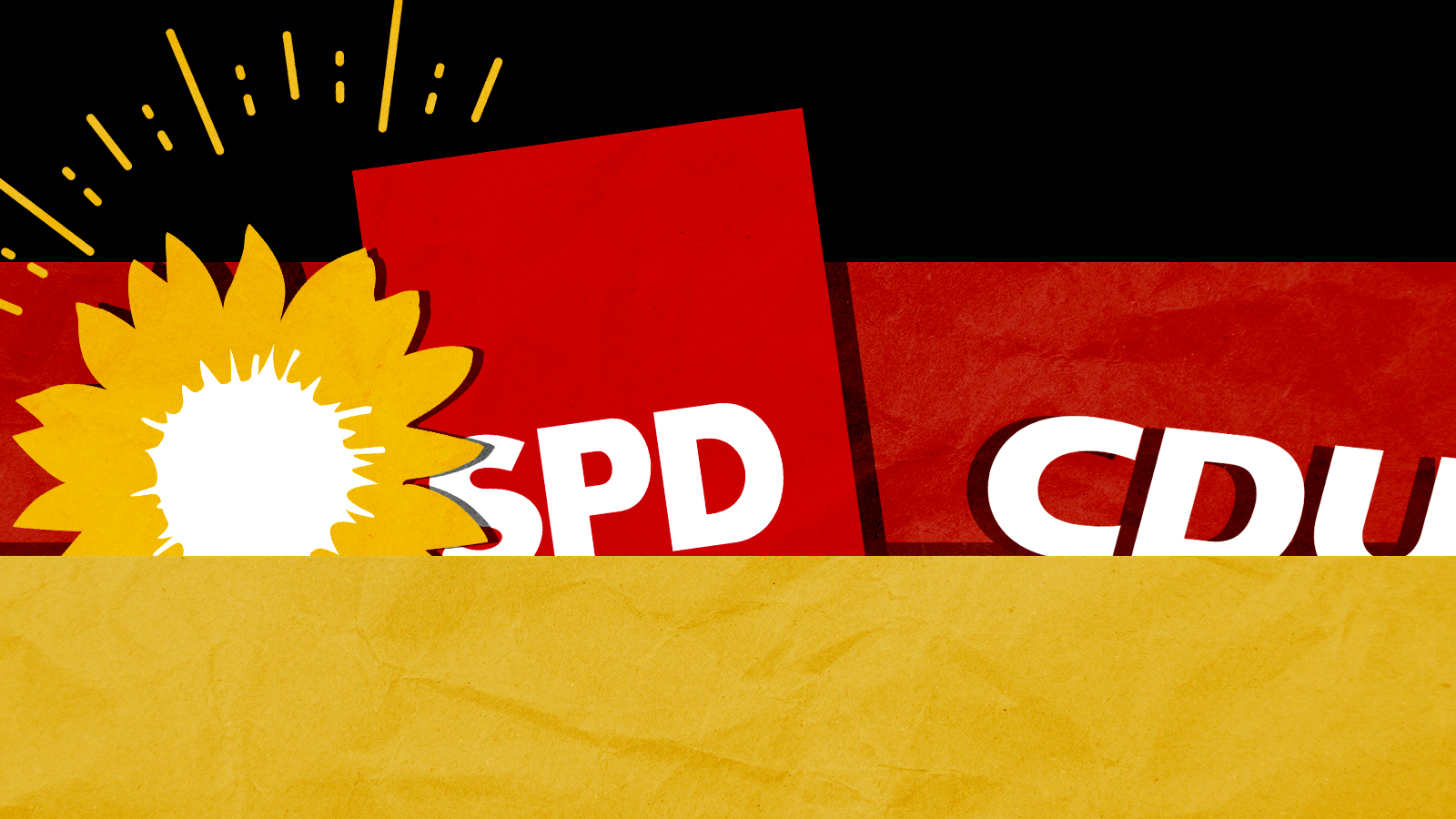Germany's surprising center-left resurgence


A free daily email with the biggest news stories of the day – and the best features from TheWeek.com
You are now subscribed
Your newsletter sign-up was successful
For much of the past four years, the prevailing political story out of Germany has been the dramatic collapse of support for the center left. But recent polling raises the possibility that something very different has been going on.
Angela Merkel's center-right Christian Democratic Union (CDU) has headed the federal government since 2005. That was bad enough for the center-left Social Democratic Party (SPD). But in the country's last legislative election, in 2017, the SPD won just 20.5 percent of the vote, its weakest showing since World War II. And things got worse from there. Soon after joining in a "grand coalition" with the CDU, the SPD dropped even lower in the polls, hovering for much of the past four years around just 15 percent. Analysts throughout the West took note of the decline and wondered what it might portend for the future of the center left across the democratic world.
But just over a month away from the next legislative elections (scheduled for Sept. 26), things are looking rather different. Aggregate polling shows the SPD rebounding to around 22 percent, only slightly better than its historically weak showing four years ago, but far better than it appeared to be doing until quite recently. Meanwhile, the real surprise is a 10-point drop for the CDU relative to its showing in 2017 (from 32.9 to 23 percent) — and an almost equal and opposite nine-point surge for the left-environmental Green Party (from 8.9 to 18 percent).
The Week
Escape your echo chamber. Get the facts behind the news, plus analysis from multiple perspectives.

Sign up for The Week's Free Newsletters
From our morning news briefing to a weekly Good News Newsletter, get the best of The Week delivered directly to your inbox.
From our morning news briefing to a weekly Good News Newsletter, get the best of The Week delivered directly to your inbox.
Now, polling for the CDU, SPD, and Greens has been somewhat volatile over the past year. (The Greens, at 18 percent, are at their low point and have been as high as 25, while the CDU, also at a low, has bounced around between the mid 30s and its current 23 percent.) But if current polling results are borne out a month from now, it would suggest that the center-left in Germany hasn't collapsed at all. On the contrary, the SPD will have held its own while a substantial number of CDU voters apparently migrated over to the Greens.
That would be a roughly 40 percent showing for the center left — quite a bit better than most analysts would have predicted four years ago (when the SPD and Greens won a combined 29 percent). Yet it would also fall far short of the majority required to form a governing coalition.
And that would point toward what might be an even bigger story out of the upcoming German election: The center left is back, but not by enough to win power decisively. Instead, Germany is increasingly fragmented, with no party or ideological configuration on the center left or center right firmly rising above the others.
A free daily email with the biggest news stories of the day – and the best features from TheWeek.com
Damon Linker is a senior correspondent at TheWeek.com. He is also a former contributing editor at The New Republic and the author of The Theocons and The Religious Test.
-
 Antonia Romeo and Whitehall’s women problem
Antonia Romeo and Whitehall’s women problemThe Explainer Before her appointment as cabinet secretary, commentators said hostile briefings and vetting concerns were evidence of ‘sexist, misogynistic culture’ in No. 10
-
 Local elections 2026: where are they and who is expected to win?
Local elections 2026: where are they and who is expected to win?The Explainer Labour is braced for heavy losses and U-turn on postponing some council elections hasn’t helped the party’s prospects
-
 6 of the world’s most accessible destinations
6 of the world’s most accessible destinationsThe Week Recommends Experience all of Berlin, Singapore and Sydney
-
 Epstein files topple law CEO, roil UK government
Epstein files topple law CEO, roil UK governmentSpeed Read Peter Mandelson, Britain’s former ambassador to the US, is caught up in the scandal
-
 Iran and US prepare to meet after skirmishes
Iran and US prepare to meet after skirmishesSpeed Read The incident comes amid heightened tensions in the Middle East
-
 Israel retrieves final hostage’s body from Gaza
Israel retrieves final hostage’s body from GazaSpeed Read The 24-year-old police officer was killed during the initial Hamas attack
-
 China’s Xi targets top general in growing purge
China’s Xi targets top general in growing purgeSpeed Read Zhang Youxia is being investigated over ‘grave violations’ of the law
-
 Panama and Canada are negotiating over a crucial copper mine
Panama and Canada are negotiating over a crucial copper mineIn the Spotlight Panama is set to make a final decision on the mine this summer
-
 Why Greenland’s natural resources are nearly impossible to mine
Why Greenland’s natural resources are nearly impossible to mineThe Explainer The country’s natural landscape makes the task extremely difficult
-
 Iran cuts internet as protests escalate
Iran cuts internet as protests escalateSpeed Reada Government buildings across the country have been set on fire
-
 US nabs ‘shadow’ tanker claimed by Russia
US nabs ‘shadow’ tanker claimed by RussiaSpeed Read The ship was one of two vessels seized by the US military
